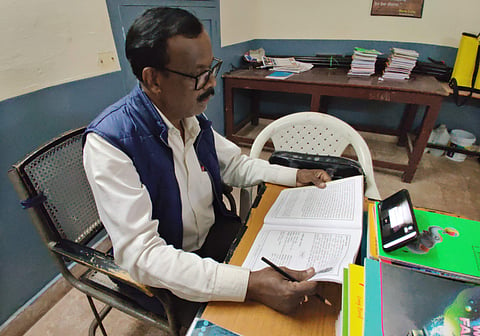

Even as physical classes for students of Classes I to XII resumed on February 1, there is still no clarity on when it will begin for nursery and kindergarten children.
Preschool students have been exclusively attending online classes for the past two years due to the pandemic. Teachers and psychologists are worried about the adverse effects of online classes on the overall growth of the children. Besides learning loss, they are also suffering from mental and physical health issues as their life revolves around the virtual world.
"Preschool period is very crucial as it is when the foundation for socio-emotional learning is laid. Their interaction with peers helps language stimulation and offline classes promote brain stimulation. These advantages are lost via the online mode as the learning is more passive and everything is in video format," said Shailaja Venkat, principal of a playschool in Velachery, Chennai.
From the kids' side, inquisitiveness and active participation are often missing during online classes. "I have been taking online classes for the past two years. I have noticed that children have lost interest and parents have to push them to attend classes. Many parents even sit beside them and force their participation. This is not an encouraging trend as preschool classes should be about learning through fun activities, but not forced upon the students," said S Padmini, a private school teacher.
Teachers and mental health experts feel that online classes are doing more harm than good for the kids. It has increased their screen time significantly and they are losing out on playing with their peers.
"Lack of interaction with peers and teachers might later manifest as difficulty in expressing themselves. Most working parents rely on electronic gadgets to engage their children and this is forming a lethargic and dull generation," said Lakshmi Vijayakumar, a city-based psychiatrist. She said many children with anger issues and sleeping problems were also visiting her.
